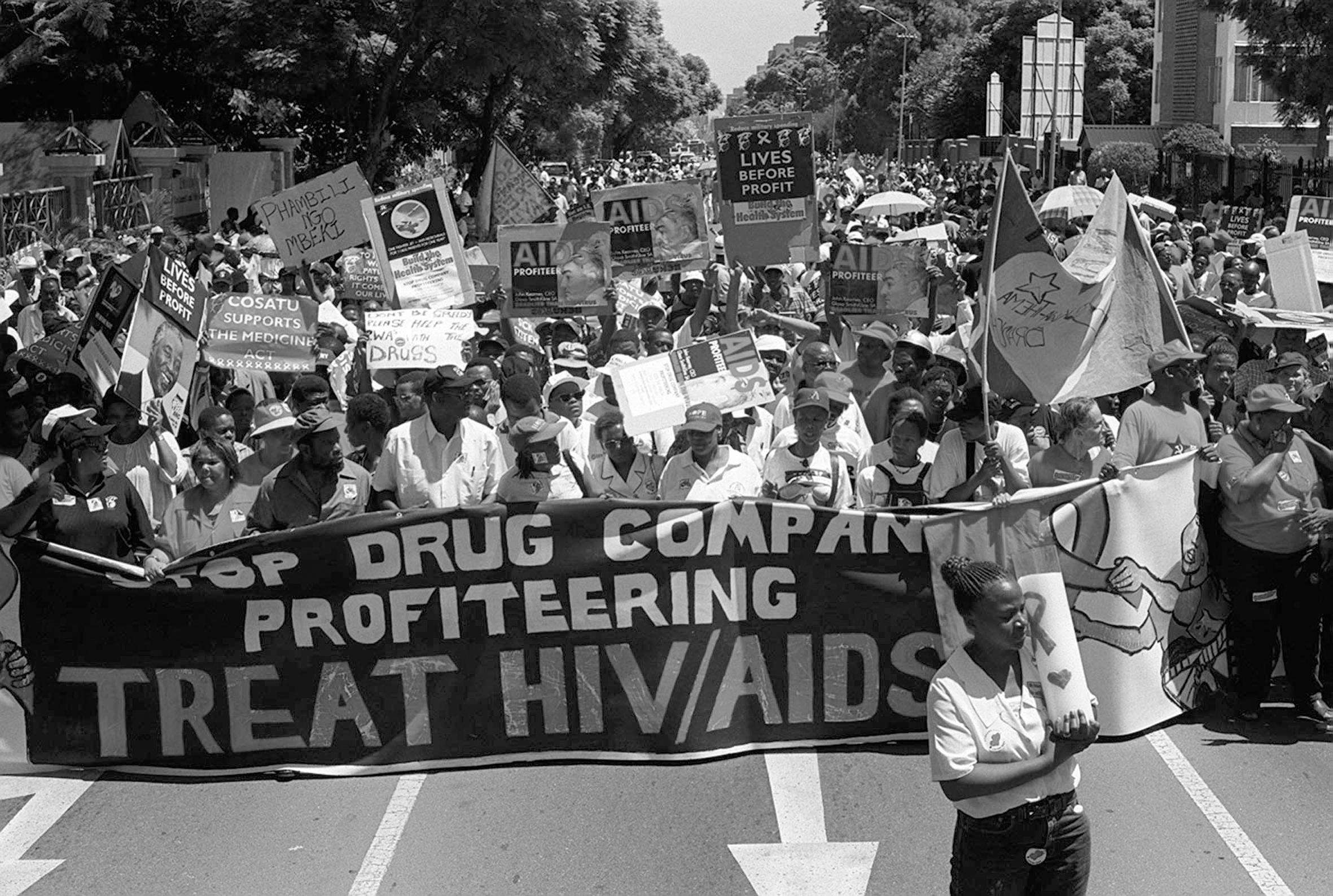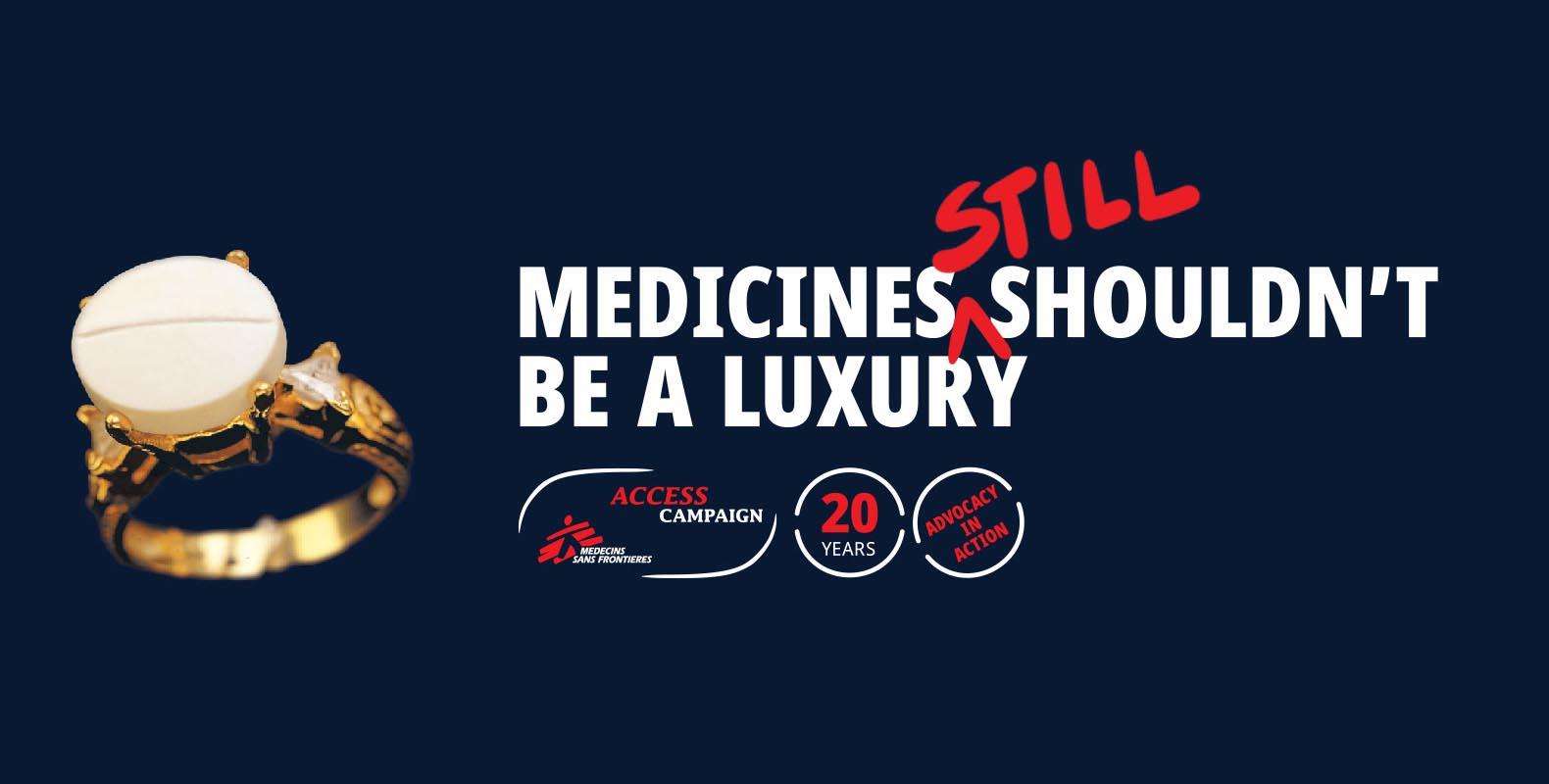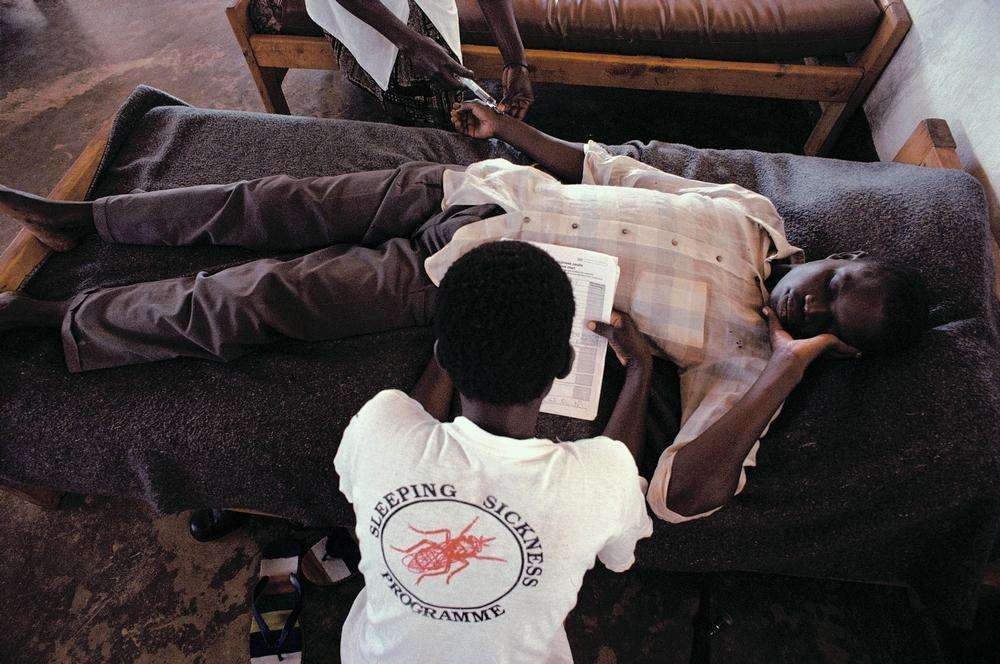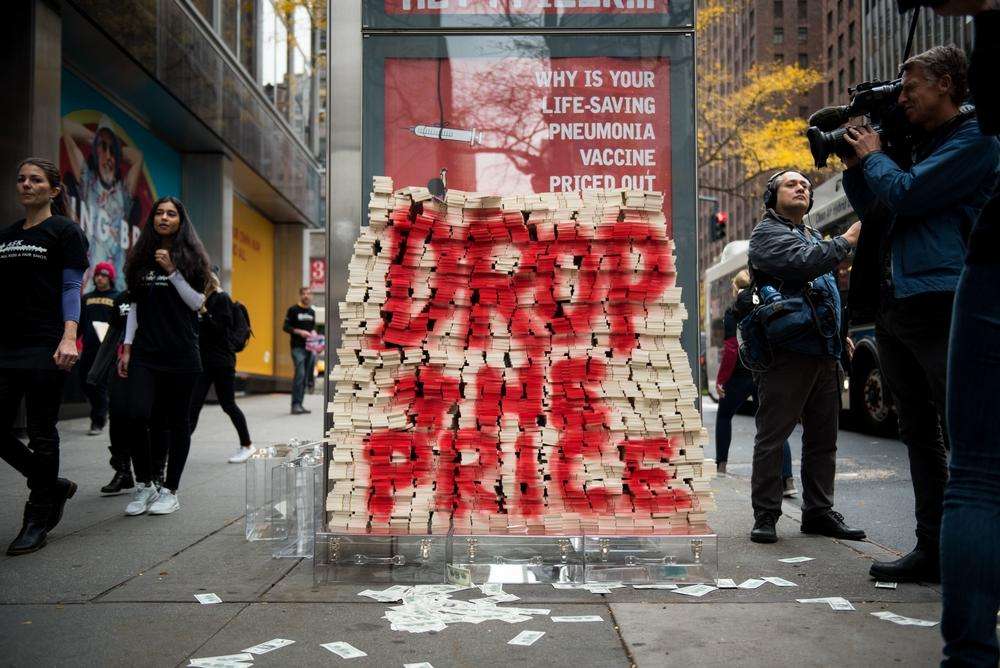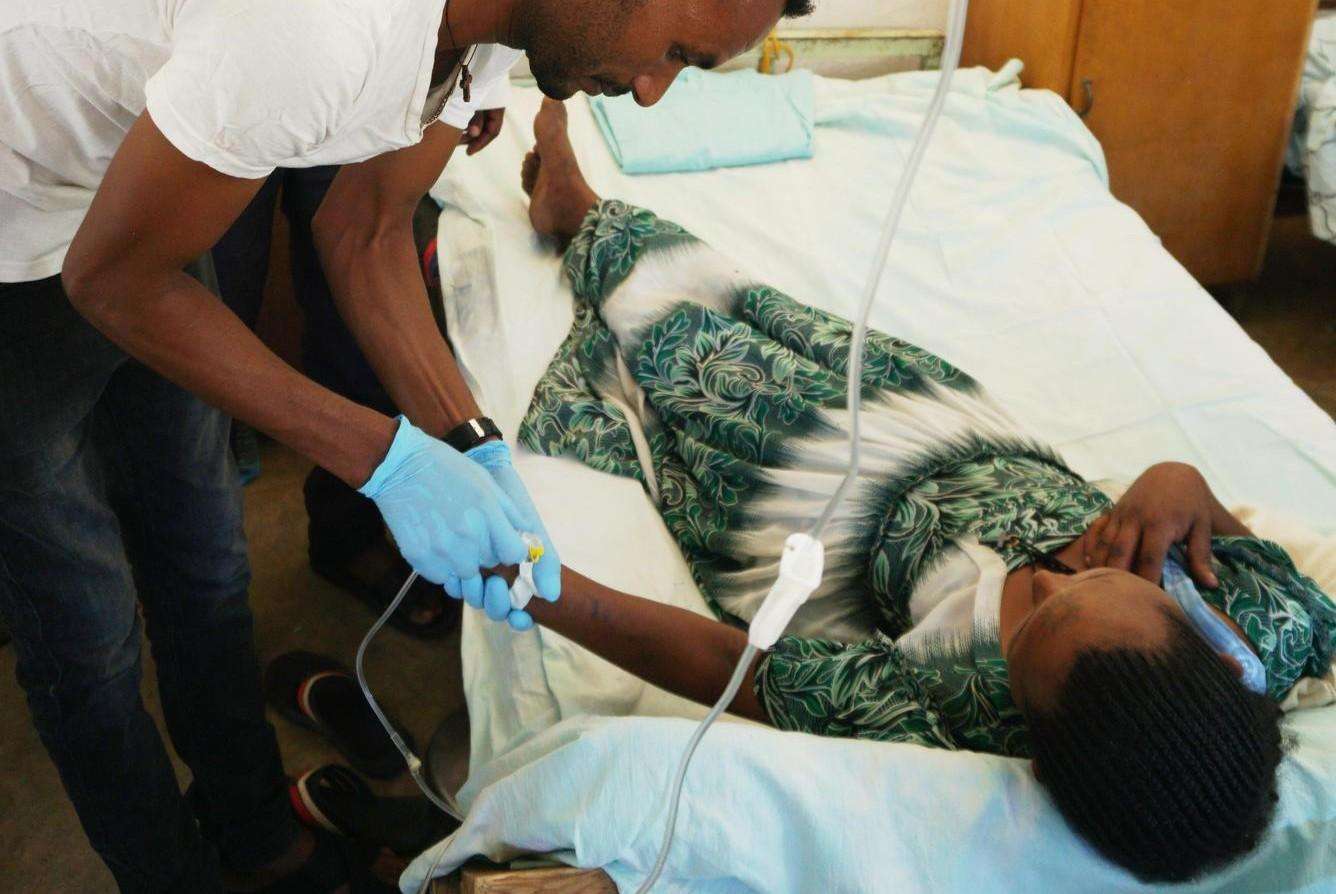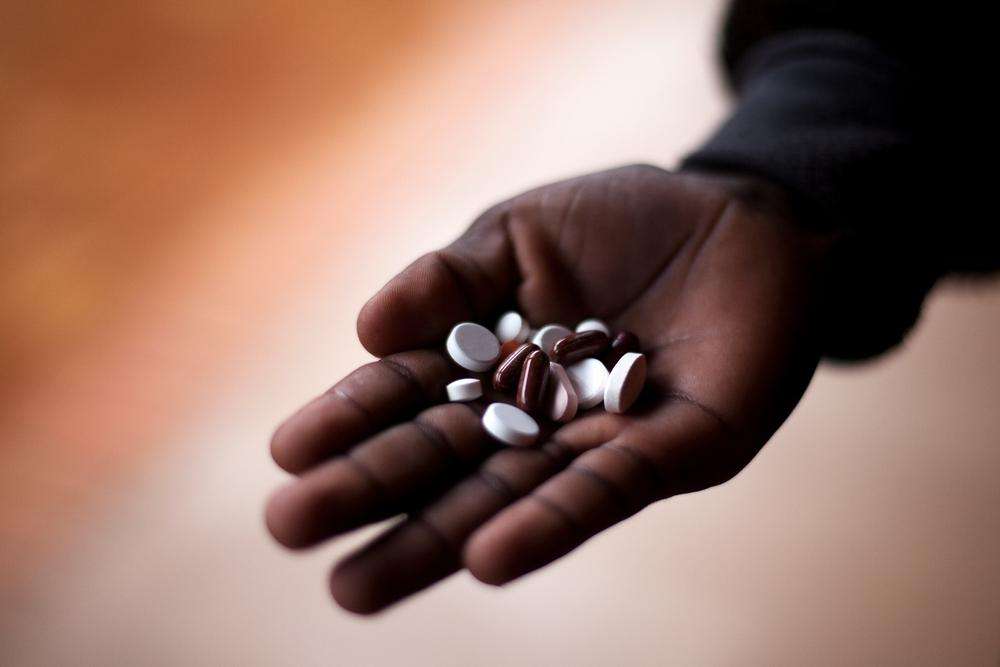Alert is a quarterly magazine published by Doctors Without Borders/Médecins Sans Frontières (MSF-USA) that features compelling stories and photography from our work in the field. Below is an excerpt from MSF-USA Board President John P. Lawrence's introduction to the Summer 2019 issue (Vol 20. No. 2.), MSF Access Campaign: 20 Years of Advocacy in Action.
Dear Friends,
Long before high drug prices became a household issue in the United States, we were challenging pharmaceutical companies, governments, and international organizations to make medicines more affordable and accessible to the people who need them most around the world. And we haven’t stopped.
Twenty years ago, Doctors Without Borders/ Médecins Sans Frontières (MSF) established the Access Campaign to bring down the barriers that keep people from getting the treatment they need to stay alive and healthy. The campaign advocates for effective and affordable drugs, tests, and vaccines suited to our patients and adapted to conditions in the places they live.
When MSF received the Nobel Prize in December 1999, MSF International President Dr. James Orbinski used his speech to draw attention to the structural reasons why medicines remain out of reach for too many people.
“Lifesaving essential medicines are either too expensive, are not available because they are not seen as financially viable, or because there is virtually no new research and development for priority tropical diseases,” Dr. Orbinski said. He demanded “change, not charity.” The prize was used to set up the MSF Access Campaign, and that call to action is still what drives us to push for change on a global scale to meet the neglected medical needs we see every day in our projects.
In this issue of Alert, we reflect on the Access Campaign’s achievements over two decades of pioneering work—from expanding access to more effective testing and treatment for malaria, to securing dramatically lower prices for a lifesaving pneumonia vaccine. The campaign also works to transform the model of medical R&D to better meet public health needs. One of the early priorities of the team was to find a better way to treat sleeping sickness, or human African trypanosomiasis (HAT).
This pioneering research on sleeping sickness and other neglected diseases eventually led to the creation of a new organization, the Drugs for Neglected Diseases initiative (DNDi), to focus on research and development (R&D). In 2018, DNDi celebrated the launch of fexinidazole, a new all-oral cure for sleeping sickness.
Among the Access Campaign’s earliest fights was he groundbreaking effort to get affordable treatment to people living with HIV/AIDS in South Africa. In these pages, you’ll learn the inside story of how MSF joined forces with activists to bring down the astronomical costs of antiretroviral drugs and make treatment more widely available.
We’re now challenging Johnson & Johnson to drop the price on the breakthrough drug bedaquiline, so that people living with drug-resistant tuberculosis (DR-TB) can be treated effectively. In April, MSF-USA staff protested outside Johnson & Johnson headquarters in New Brunswick, New Jersey, during the company’s annual shareholders meeting, to demand action.
In May, the Access Campaign welcomed the WHO’s strategy on the prevention and control of snakebite envenoming, which kills more people than any other neglected tropical disease. Globally, more than 100,000 people die each year following bites from venomous snakes, and some 400,000 more suffer from disabilities and disfigurement. MSF has spent years calling for snakebite to be a priority on the global health agenda, because we know that lives can be saved with concerted action.
On a personal note, I’d like to wish you farewell as my term as president of the MSF-USA board of directors comes to an end. While I will continue to serve on the board, I am delighted to introduce MSF-USA’s new president: Dr. Africa Stewart, an ob-gyn and passionate advocate for women’s health who has completed five assignments with MSF. I know you’ll enjoy hearing from her in future issues of Alert.
It has been a great honor for me to lead MSF-USA during such a critical time, and I look forward to continuing to work with our staff in the office and with colleagues around the world responding to urgent medical humanitarian needs.
Sincerely,
John P. Lawrence, MD
President, MSF-USA Board of Directors
